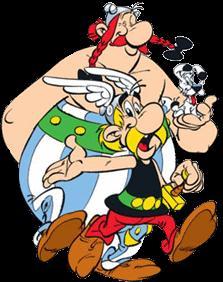I’ve been obsessed with blogs lately. (Still didn’t get back to work you see…) Been reading up on all sorts of blogs. I came across one that deliberated on the meaning of life, a question that everybody has asked, one time or another in their lives, and then came up with an answer that they can accept or have concluded that its not worth the trouble and moved on or have wasted more time on it than they should have and then ended up on the same line with the others. One thing is for sure, there hasn’t been an answer to that has been universally shared or accepted by all who asked it.
 The post I stumbled upon was rather serious. Of course I didn’t get most of it. (mental note to self: shoulda stuck to porn sites that are more suitable for a person with my level of intellect). Anyhow, I got to thinking about it my way and remembered that I had read something about it once that kinda made sense. I’ll be sharing that with you. For further research on the topic(the bum way) watch Monty Python’s THE MEANING OF LIFE.
The post I stumbled upon was rather serious. Of course I didn’t get most of it. (mental note to self: shoulda stuck to porn sites that are more suitable for a person with my level of intellect). Anyhow, I got to thinking about it my way and remembered that I had read something about it once that kinda made sense. I’ll be sharing that with you. For further research on the topic(the bum way) watch Monty Python’s THE MEANING OF LIFE.
[Caution: Don’t watch it if you don’t have a thing for nonsense. ;)]
“For the same uprush of fancy which had shown him with all the force of mathematical demonstration that life had no meaning, brought with it another idea; and that was why Cronshaw, he imagined, had given him the Persian rug. As the weaver elaborated his pattern for no end but the pleasure of his aesthetic sense, so might a man live his life, or if one was forced to believe that his actions were outside his choosing, so might a man look at his life, that it made a pattern. There was as little need to do this as there was use. It was merely something he did for his own
pleasure. Out of the manifold events of his life, his deeds, his feelings, his thoughts, he might make a design, regular, elaborate, complicated, or beautiful; and though it might be no more than an illusion that he had the power of selection, though it might be no more than a fantastic legerdemain in which appearances were interwoven with moonbeams, that did not matter: it seemed, and so to him it was. In the vast warp of life (a river arising from no spring and flowing endlessly to no sea), with the background to his fancies that there was no meaning and that nothing was important, a man might get a personal satisfaction in selecting the various strands that worked out the pattern. There was one pattern, the most obvious, perfect, and beautiful, in which a man was born, grew to manhood, married, produced children, toiled for his bread, and died; but there were others, intricate and wonderful, in which happiness did not enter and in which success was not attempted; and in them might be discovered a more troubling grace. Some lives, and Hayward's was among them, the blind indifference of chance cut off while the design was still
imperfect; and then the solace was comfortable that it did not matter; other lives, such as Cronshaw's, offered a pattern which was difficult to follow, the point of view had to be shifted and old standards had to be altered before one could understand that such a life was its own justification. Philip thought that in throwing over the desire for happiness he was casting aside the last of his illusions. His life had seemed horrible when it was measured by its happiness, but now he seemed to gather strength as he realised that it might be measured by something else. Happiness mattered as little as pain. They came in, both of them, as
all the other details of his life came in, to the elaboration of the design. He seemed for an instant to stand above the accidents of his existence, and he felt that they could not affect him again as they had done before. Whatever happened to him now would be one more motive to add to the complexity of the pattern, and when the end approached he would rejoice in its completion. It would be a work of art, and it would be none the less beautiful because he alone knew of its existence, and with his death it would at once cease to be.”
- Maugham, W. Somerset, Of Human Bondage
Lévy-Dhurmer, Vent d'Automme - Portrait de Mlle Suzanne S.






